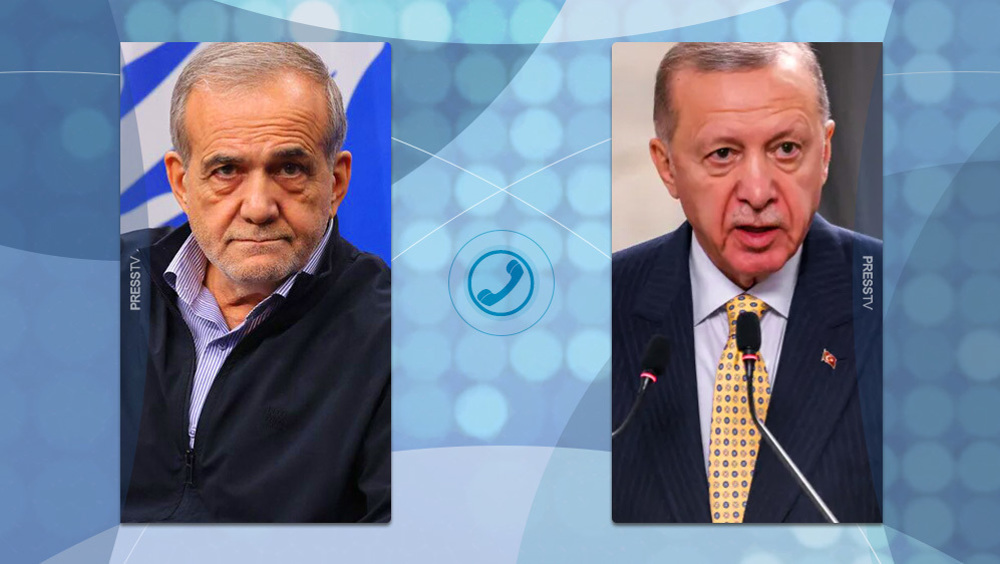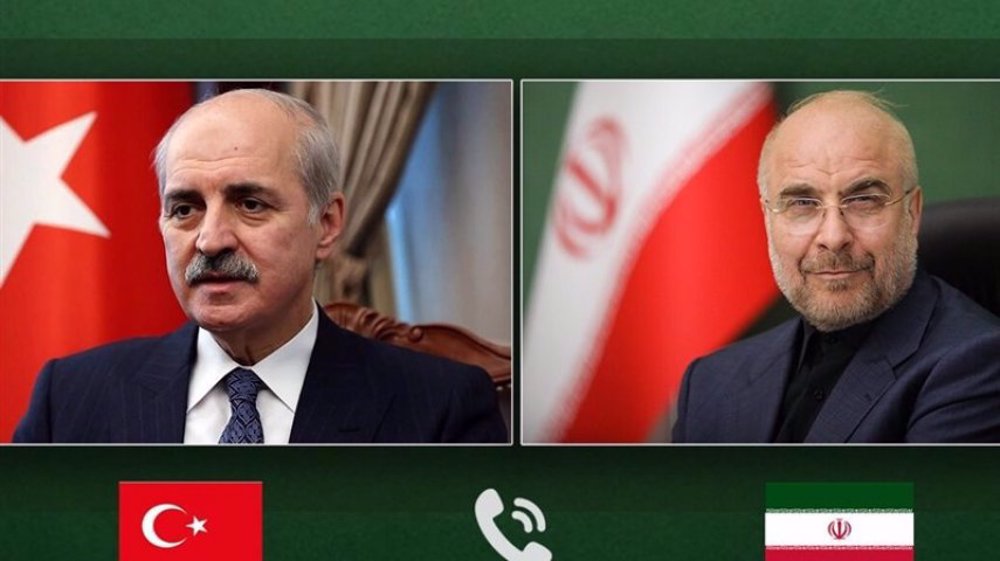Donald Trump: S400-F35 tension between US, Turkey Obama's fault, not Ankara's
US President Donald Trump says the current tension over Turkey’s purchase of Russian-built S-400 air defense missile systems and US F-35 stealth warplanes is former American President Barack Obama’s fault, not Ankara’s.
The S-400 is an advanced Russian missile system designed to detect, track, and destroy planes, drones, or missiles as far as 402 kilometers away. It has previously been sold only to China and India.
Turkey and the US, two NATO allies, have been at loggerheads for months over Ankara’s purchase order for the S-400s, which Washington claims are incompatible with NATO systems and the F-35 stealth fighters.
Furthermore, Washington has given Ankara until the end of July to cancel its purchase of the Russian missile defense systems or see another deal - for the purchase of F-35 stealth fighters from the US – canceled.
The White House has time and again threatened to impose sanctions on Turkey if it presses ahead with its 2017-finalized deal with Moscow for the advanced missile system. Ankara, for its part, has repeatedly said that the S-400 purchase is a “done deal” and that there is no setback in the deal, warning that it will also retaliate if Washington imposes sanctions over the purchase.
The US has already suspended training Turkish F-35 pilots over the issue.

However, Trump used a softer tone over the issue after a meeting with Turkish President Erdogan on the sidelines of the G20 summit in Osaka, Japan, on Saturday. He blamed his predecessor Barack Obama for causing the current US-Ankara row by not selling US Patriot missile systems to Turkey.
“Obama administration said no, no, no to Turkey when they wanted to purchase Patriots and they [Turkey] bought S-400,” Trump said in a joint press conference with Erdogan, calling Obama administration's reluctance and failure to sell Patriots to Turkey a “mess.”
He also described his Turkish counterpart as a “tough guy”, with whom he can “get along”, while calling the whole issue “a problem.” The American president also criticized the Obama administration for not treating Erdogan “fairly.”
Following Trump’s remarks, a statement released by the White House said that the US president had also expressed his concerns over the “potential purchase” of the S-400.
Trump also “encouraged Turkey to work with the United States on defense cooperation in a way that strengthens the NATO alliance,” the White House further said.

'No US sanctions over S-400'
In a separate press conference hours after talks with Trump, Erdogan said that the US president had personally told him that there would be no US sanctions on Turkey over the S-400 purchase.
“We have heard from him personally that this would not happen. We are strategic partners with the United States. As strategic partners, nobody has the right to meddle in Turkey's sovereign rights. Everyone should know this,” the Turkish president said.
However, Trump had earlier said that “We're looking at it. But it’s a two-way street”, when he was asked whether Washington impose sanctions against Ankara if it pressed ahead with its purchase from Russia.
Elsewhere in his comments, Erdogan said Ankara expected the delivery of F-35 stealth fighter jets from the US, despite the dispute over the S-400 deal.
“What some people in lower ranks are saying absolutely does not align with Mr. Trump’s approach. I believe these will not harm our bilateral ties, and that is the commitment we are going on with,” he added.
Erdogan reiterated that the Russian missile systems would be delivered in the first half of July.

“No delays in S-400 delivery of S-400”
Minutes before holding a meeting with his Russian counterpart, Vladimir Putin, Erdogan reaffirmed that there would be no delays in the delivery of S-400 missiles to Turkey.
“We continue to observe the process of delivery of S-400 systems with regard to our agreement reached in Dushanbe. I would also like to note that joint missile building, including the transfer of technologies, is a priority for our cooperation. As far as I understand, there are no delays in the process of this delivery,” he said.
Later on Saturday, Kremlin spokesman Dmitry Peskov said that the S-400 deal with Turkey envisaged a partial technologies transfer.
“The contract envisions partial transfer of production technologies,” he told a press conference.
Back in early April, Washington announced that it would be suspending all “deliveries and activities” related to Turkey’s procurement of F-35 stealth fighter jets over Ankara’s plans to purchase the S-400s.
Erdogan had earlier threatened that Ankara would appeal to international courts and ask for its F-35 payments, some 1.4 billion dollars, to be refunded if needed.
Washington, for its part, had previously warned that the S-400 deal would jeopardize Turkey’s cooperation with NATO. Ankara had also said it would not bow to US pressure to cancel the deal with Moscow.
VIDEO | Press TV's news headlines
‘Regime-change’ lobbyist cited as Time source on Iran’s riot death toll
US bishops urge ‘respect for life’ as anger swells over ICE killings in Minneapolis
US systematically paralyzing international institutions, Iran tells APA session
Iranian Embassy condemns Israeli airstrikes in southern Lebanon
10 foreign spy agencies involved in plot to destabilize Iran: IRGC intelligence
VIDEO | Gazans pay tribute to Palestinian artists killed by Israel, honor their families
Minneapolis murders by ICE – backed by Trump – push US to the brink as protests intensify













 This makes it easy to access the Press TV website
This makes it easy to access the Press TV website